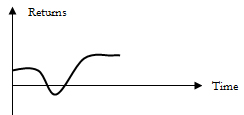That's a fascinating article from the Guardian. A misleading article, but fascinating all the same. There seems to be a campaign going at the moment to talk down ebooks and promote paper. Here's a similar article from the Wall Street Journal:
http://www.wsj.com/articles/e-book-sales-weaken-amid-higher-prices-1441307826
But when you look more closely at the figures, a different picture emerges. It turns out that some of these reports are comparing apples and pears. The Guardian report compares ereader sales at Waterstones with paper book sales. The headline says "Waterstones to stop selling Kindle as book sales surge". This seems to suggest a decline in the popularity of ebooks over printed books. But ebook readers are not ebooks. As others have said, once you have bought your reader you don't rush to buy another one. But you do keep buying ebooks. So by comparing the sales of ebook readers to printed books, the Guardian (and I suspect Waterstones) are trying to talk down ebooks. They want to present an image of "See! I told you that ebooks were only a flash in the pan."
The Wall Street Journal shows a similar trick. The Association of American Publishers are trying to argue the same point - that ebook sales are falling compared with paper. But they are also being somewhat economical with the truth. They are comparing the profit that their members make from ebooks compared with paper. What they are not doing is looking at the market as a whole. Here's the counter view:
http://fortune.com/2015/09/24/ebook-sales/
This suggests that ebook sales as a whole are staying steady or possibly increasing by 1% a year. The manager of my local WH Smiths put it like this: ereaders are really eating into the fiction section, but WH Smiths are still selling a lot of paper books that rely on photography such as cookery books, guides and travel books. They are increasingly taking shelf-space away from fiction to allow them to stock more picture-heavy books. But of course, the Guardian or Wall Street Journal don't mention little details like this. They have a story they want to tell (ebooks are declining) and they will use any old fact to try to back it up.
I do hate it when journalists and big organisations try to treat us like idiots by manipulating statistics like this. Naturally, they do have a vested interest. Call me old fashioned, but I do like my news to come with at least some impartiality and credibility.


